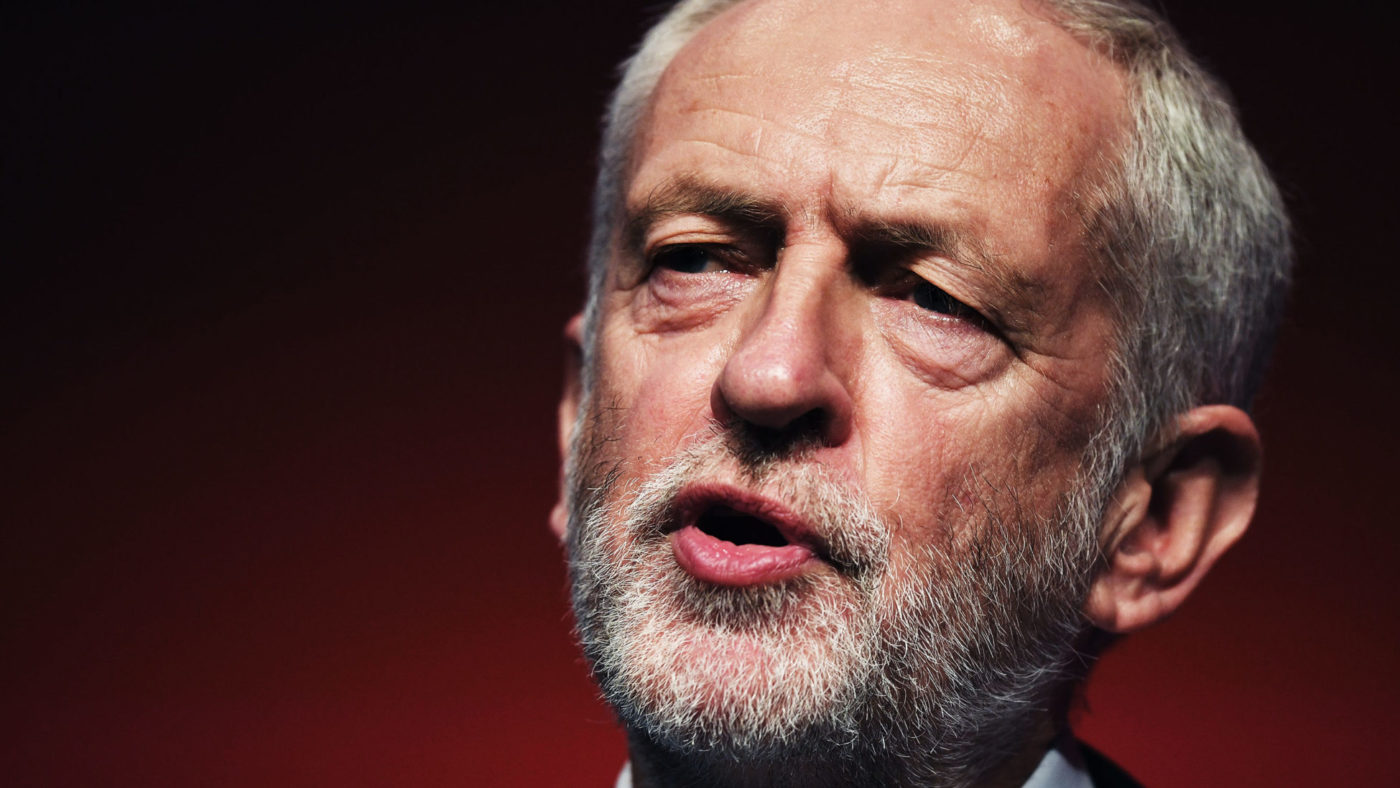Wooden, pedestrian, halting, and with weird vocal inflections and randomly emphasised words: as a platform speaker, Jeremy Corbyn is truly in the class of Edward Heath. Yet yesterday’s conference speech was slightly better written and more confidently delivered than his previous ones.
It was in fact that tone that was most striking. And to me, as a customary Labour voter, it was chilling. Against a weakened prime minister and a dysfunctional Conservative government, Tony Blair as opposition leader used his conference speeches to appeal to voters. Corbyn, by contrast, appeals to the truths held as self-evident by his supporters in the conference hall. He is more like Donald Trump, in that respect.
Corbyn’s speech held not a trace of reflectiveness, doubt or the need to convince voters of trade-offs and opportunity costs. Most particularly and dismayingly, it exhibited no sense of contrition for the fears and apprehensions of British Jews about a party leader who unquestionably fails to understand their concerns and engages himself in anti-Semitic tropes.
When he told the conference that “anti-racism is integral to our very being”, he was uttering a bromide that is demonstrably untrue. Corbyn has a severe problem with recognising, let alone opposing, anti-Semitism. How can he say something that, to the great majority of British Jews, is so unreflective? The answer is that Corbyn himself and the movement he leads exempt themselves from moral failings. By definition, so they reason, theirs is the cause of the elect.
The great Protestant ethicist Reinhold Niebuhr wrote an influential book in 1944 titled The Children of Light and the Children of Darkness. Very much influenced by the thinking of Saint Augustine, he argued that however soaringly idealistic a political cause or community, “there is no level of human moral or social achievement in which there is not some corruption of inordinate self-love”.
The merit of liberal democracy is that it acknowledges this universal human characteristic and provides a constitutional constraint on it. Yet the politics of Corbynism, like the politics of Trump, there are only “children of light”: those who know the truth and blame their enemies for bad faith and malevolent intentions. Corbyn’s attack on a “free press [that] has far too often meant the freedom to spread lies and half-truths, and to smear the powerless” makes complete sense in this light. The righteous are in the conference hall, their enemies are in the press, and “you challenge their propaganda of privilege by using the mass media of the 21st century: social media”.
It’s pernicious nonsense. Corbyn has famously appeared on and explicitly commended the state propaganda outlets of autocracies with appalling human rights records. He praised the coverage of Russia Today, whose own former correspondents condemn its deliberate lies and “shockingly obvious misinformation”. Social media is a place where unchecked rumours and hoary myths spread, and where journalists are harassed and abused (especially high-profile female journalists like Laura Kuenssberg).
On the economy, a party of the centre-left could have much to say about corporate governance, active fiscal policy, regulation and the labour market. Corbyn’s cartoonish depiction of “banks fixated on piling up profits around the world” doesn’t begin to address these subjects.
The financial crisis showed that there is always some risk of contagion in a system where the banks are tied together in the wholesale lending market. The system urgently needs to be reformed to serve the aim of stabilising the economy. I have no idea what Labour’s approach is. On the most divisive of current political issues, the fundamentally irrational step of Brexit, Corbyn declares that if the government can’t negotiate an adequate deal then they “need to make way for a party that can”.
But there is no such party. Labour too aims at exiting the single market. That must mean a hard border in Northern Ireland, as well as needless damage to the economy by erecting trade barriers (notably non-tariff barriers such as rules of origin).
That’s where British politics now is. The Westminster model works, to the extent that it does, with a set of social preconditions. It requires rational and tolerant parties of the left and right who understand that elected office legitimately switches between them from time and time.
Till recently, both main parties also understood the cause of Europe. Labour recognised that the EU enabled collective action on such issues as environmental protection and workers’ rights. The Tories understood that a single market has huge efficiency gains. Britain is now engaged in diplomatic rupture and economic self-harm; Labour’s response is to adopt the same policy but with militant self-regard. It’s a dismal prospect.


